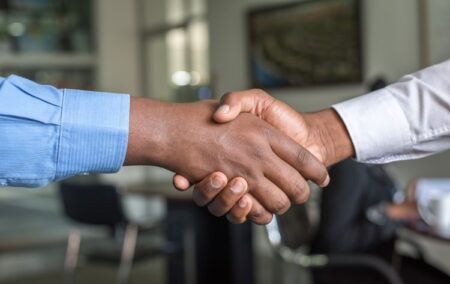South Africa is a diverse country, the most important and visible aspect being our various cultures, our ways of doing things, our languages. This is the beauty of this place: that so many people of different religions, schools of thought, outlooks and values can still collaborate in the creation of the brilliant things that South Africans create every day. The people who live here, along with their ancestors, have created the best industry in Africa and the best financing institutions for that industry, amongst others.
South Africans are not united; we may have some common interests but in general each person has particular goals and pursues these. We collaborate with different people on different things where the same interest is shared at that moment, but not necessarily all the time or in pursuance of the same ultimate goals. This is what makes this country great, the free expression of this impulse to be uniquely creative and operate only with those who share some of the same interests.
South Africans live in a society riddled with crime, where extreme violence is meted out daily. Yet, South Africans are also peaceful people, wanting to go about their business every day without interfering in that of other people. Here again, individuals have come together to defend themselves against violent minorities, whether through private security companies or community neighbourhood watches.
No one speaks for all South Africans. People can only speak for themselves, and what we can speak for is their right to be free to speak and act. So, when a journalist asks the leader of the opposition “Which South Africans are you speaking to?”, the answer is that he is speaking to and for everyone who has been denied the right to freedom. Even if there was only one such person in the whole country, that goal would be enough. It is important that law should be rational and grounded in the appreciation of and respect for liberty.
The government, in choosing not to have faith in the capacity of citizens to make rational decisions for themselves, also undermines its own legitimacy. In a constitutional democracy such as ours, legitimacy is conferred by the consent of the governed. This consent is not limited to choosing public representatives, it includes the sovereignty of individuals over themselves and their property.
Only free individuals can make legitimate social decisions, including economic and political decisions. If this principle is undermined in one area, it is undermined everywhere. Individuals will no longer be free to express their values, and pursue happiness in any peaceful manner. It is a violation of society, of the individual and the essence of what it is to be human, distinct from all other species on earth.
The experts, including Professor Shabir Madhi, Chair of the Public Health Subcommittee of the Ministerial Advisory Committee on COVID-19, are pointing out that the unintended consequences of restricting freedom through a lockdown could be worse than the consequences of the disease itself. Most if not all of these experts supported the initial hard lockdown but have also admitted that they chose what they judged to be the least bad option at the time, in the absence of data. This reveals some of the flaws in restricting liberty on the basis of advice by scientists.
Scientists should certainly offer advice, but they should simultaneously indicate the uncertainties inherent in making predictions about nature and stress the importance of letting each individual rationally evaluate the evidence as communicated by the experts. It is encouraging that so many have changed their minds about a lockdown, but in order to establish a firmer basis for liberty, we need to set out the principled position why the fact of a lockdown is wrong, no matter what the scientific evidence says.
As indicated, science is subject to uncertainties, and the same is true of social studies. Human beings are complex creatures with an inner life that is impossible to predict with any degree of accuracy. If human beings were generally predictable, there would be no need for liberty at all, we could just organise society on the basis of what we know each person is bound to want.
Real human beings on the other hand participate in a complex dynamic with their environment and their subjective inner experience. They pursue goals that are not necessarily discernible from their actions. They follow complex paths to reach unknowable goals, from the standpoint of most other people.
That is why this beautiful diversity requires some level of inequality across any area of individual self-expression one cares to measure. That is why you need the law to treat each individual equally and objectively, in order for this diversity to express itself and to preserve the possibility that an individual can be happy. The people we elect to represent us, do not become by virtue of that election, privy to the inner workings of our minds.
Politicians need to understand, once and for all, the boundary of where their borrowed authority ends. If politicians do not respect these boundaries, it can only cause conflict in society, not to mention economic costs that make more and more people poor.
It is critical that politicians, the judiciary, civil society and all state institutions understand the importance of the individual, and why the concept can never be abandoned in our politics, no matter what the circumstances are. It is a contradiction to seek to save human lives by violating the one thing that distinguishes human beings: the ability to reason and make decisions. Now more than ever, we should be seeking to expand the domain of every South African by increasing property ownership. There’s only one way to do this, the government must give up what it has taken from us, the people.
The views of the writer are not necessarily the views of the Daily Friend or the IRR
If you like what you have just read, subscribe to the Daily Friend
Photo by Cytonn Photography on Unsplash

